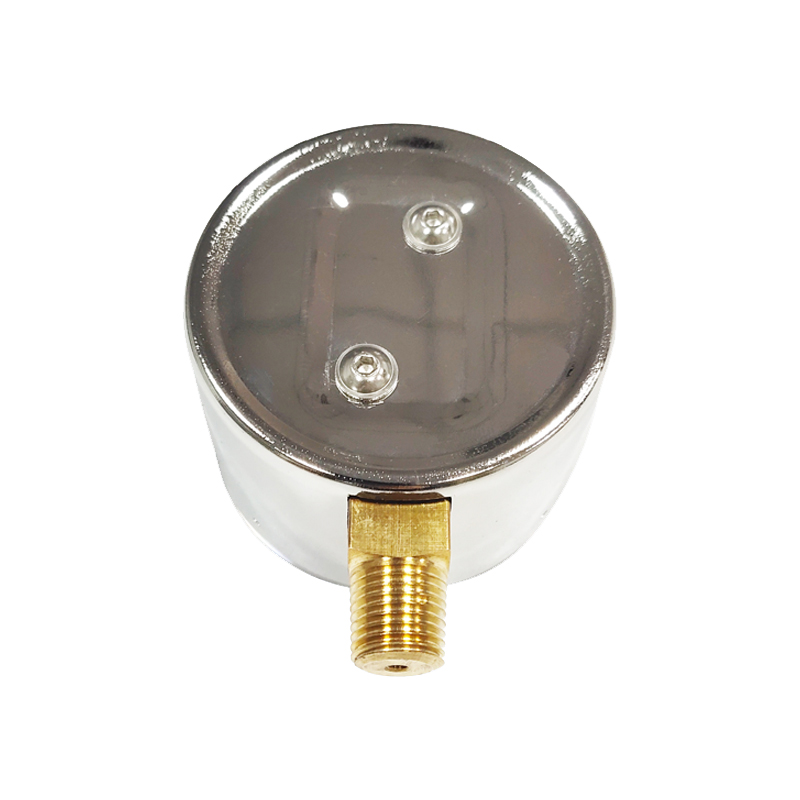
Dec . 25, 2024 03:57 Back to list
stainless steel differential pressure gauge product
Understanding Stainless Steel Differential Pressure Gauges
In various industrial applications, the need for precise measurement of pressure differences is paramount. One of the reliable instruments used for this purpose is the stainless steel differential pressure gauge. These gauges are essential in maintaining the efficiency and safety of processes in numerous sectors, including oil and gas, chemical processing, water treatment, and HVAC systems. This article provides an overview of stainless steel differential pressure gauges, focusing on their functionality, advantages, and applications.
What is a Differential Pressure Gauge?
A differential pressure gauge measures the difference in pressure between two points in a system. This is crucial for monitoring processes where pressure variations can indicate potential issues such as blockages, leaks, or fluctuations in flow rates. The gauge consists of two pressure ports that connect to the system, allowing it to sense and display the difference in pressure between these points.
Construction Material Why Stainless Steel?
The choice of materials in constructing differential pressure gauges significantly impacts their performance and longevity. Stainless steel is favored for several reasons
1. Corrosion Resistance Stainless steel is highly resistant to corrosion, making it ideal for use in harsh environments where exposure to chemicals, moisture, and high temperatures is common. This durability ensures a longer lifespan for the gauge, reducing the need for frequent replacements.
2. Strength and Stability Stainless steel provides excellent mechanical strength, enabling the gauge to withstand high pressure without deformation. This stability is crucial in maintaining accurate readings and ensuring the safety of the entire system.
3. Hygienic Properties In industries such as food and pharmaceuticals, where cleanliness is of utmost importance, stainless steel is an appropriate choice due to its non-porous nature. It can be easily cleaned and sanitized, meeting strict hygiene standards.
How Differential Pressure Gauges Work
The operation of a stainless steel differential pressure gauge is relatively straightforward. When fluid flows through the system, the pressure at the two connection points can differ due to resistance or changes in elevation. The gauge has a sensing mechanism, typically a diaphragm or a Bourdon tube, that reacts to the difference in pressure. As the pressure on either side of the diaphragm changes, the deformation of the diaphragm translates into a readable measurement on the gauge dial, often calibrated in units of pressure such as psi or bar.
stainless steel differential pressure gauge product

Advantages of Using Stainless Steel Differential Pressure Gauges
1. Accuracy These gauges provide precise readings, which are critical for monitoring processes and ensuring operational efficiency. Accurate pressure measurements help prevent system failures and optimize performance.
2. Versatility Stainless steel differential pressure gauges can be used in a wide range of applications, from measuring air pressure in HVAC systems to monitoring fluid flow in pipelines. Their adaptability makes them suitable for various industries.
3. Low Maintenance Due to their durable construction and resistance to environmental factors, stainless steel differential pressure gauges require minimal maintenance. Regular checks and calibrations can suffice to ensure long-term accuracy.
4. Temperature Resistance Many stainless steel gauges are designed to withstand high temperatures, making them suitable for applications involving hot fluids or gases without risking damage or inaccurate readings.
Applications of Stainless Steel Differential Pressure Gauges
Stainless steel differential pressure gauges find applications in numerous fields, including
- Chemical Manufacturing Monitoring pressure differences in reactors and distillation columns. - Oil and Gas Managing pressure in pipelines and processing equipment. - HVAC Measuring airflow and ensuring optimal performance of heating and cooling systems. - Water Treatment Monitoring pressure in filtration and desalination processes.
Conclusion
Stainless steel differential pressure gauges play a vital role in ensuring the smooth operation and safety of various industrial processes. Their robust design, coupled with the advantages of stainless steel, makes them an effective choice for applications requiring reliable pressure measurement. With their ability to deliver accurate and durable performance, these gauges are indispensable tools that enhance efficiency and prevent costly downtime in industrial settings. As industries continue to innovate and evolve, the demand for dependable measurement instruments like stainless steel differential pressure gauges will undoubtedly increase, shaping the future of process monitoring and control.
-
High-Quality Pressure Gauge on Fire Extinguisher - Reliable Water Fire Extinguisher Pressure Gauge Suppliers & Exporters
NewsJul.08,2025
-
High-Quality Water Pressure Differential and Gauge Kit Reliable Manufacturers & Competitive Quotes
NewsJul.08,2025
-
High-Precision Digital Diaphragm Pressure Gauge – Reliable Manufacturer & Competitive Quotes
NewsJul.07,2025
-
Wholesale Diaphragm Pressure Gauge Supplier - Premium Quality & Competitive Price
NewsJul.07,2025
-
Digital Diaphragm Pressure Gauge Reliable & Precise Measurement Top Manufacturers Quotes
NewsJul.06,2025
-
High Accuracy Piston Type Differential Pressure Gauge - Reliable Manufacturers & Competitive Quotes
NewsJul.06,2025
